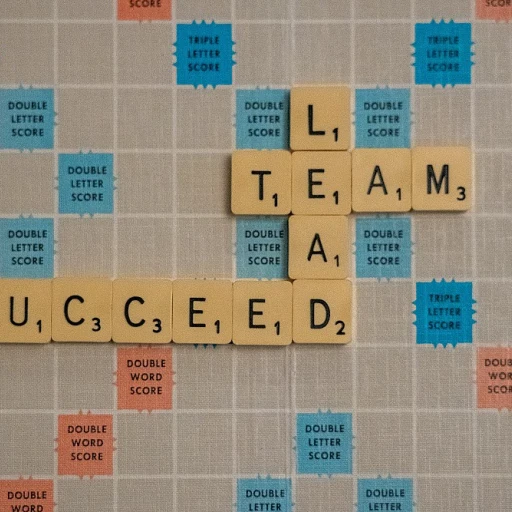
Understanding the Role of a Supervisor
Navigating the Responsibilities of a Supervisor
The role of a supervisor is crucial in any organization, serving as the bridge between management and team members. A successful supervisor not only oversees day-to-day operations but also sets the tone for a positive work environment by ensuring open communication and supporting the company culture. Understanding the multifaceted nature of the supervisor role is essential, especially when considering candidates for this pivotal position. Effective supervision requires a blend of diverse skills, from communication skills to leadership style, enabling supervisors to guide their teams towards achieving collective and individual goals. It's important to look at how these competencies allow a supervisor to balance competing demands and conflicting priorities while fostering a supportive work environment. Moreover, exploring candidates’ previous job experiences and how they relate to the supervisor role can provide insight into their potential fit within your team. As you move on to formulate key competencies to evaluate during the interview process and craft specific interview questions, consider the alignment of a candidate's past experiences with the responsibilities of the supervisor role. Comprehensive understanding of these elements will not only help in assessing their problem-solving capabilities but also in ensuring they are capable of leading the team effectively. For those who are exploring HR systems further, understanding how candidate representation agreements are handled within HR systems can provide additional context. Learn more about this topic and how it relates to effectiveness in human resources roles by exploring relevant resources, such as this article on candidate representation agreements.Key Competencies to Evaluate
Evaluating Core Competencies of a Supervisor
When conducting an interview for a supervisor role, focusing on key competencies is crucial in identifying the right candidate. Supervisors often have to juggle multiple responsibilities, so it's essential to pinpoint skills that will help maintain a positive work environment. Consider these areas:- Leadership Style: Effective supervisors exhibit a leadership style that resonates with both company culture and team goals. Understanding their approach to conflict resolution and how they ensure team members are motivated can provide insights into their leadership qualities. Ask questions such as "How do you handle conflicting priorities at work?" or "In what ways do you encourage open communication within your team?"
- Communication Skills: Supervisors need to ensure that information flows efficiently between management and team members. By asking candidates to discuss previous scenarios where their communication prowess enabled team success, you can better gauge their suitability for the role.
- Problem-Solving and Decision-Making: Supervisors frequently encounter complex situations that require quick decision-making. Inquiring about past experiences, such as "Describe a time you successfully resolved a challenging situation," will hint at their problem-solving aptitude.
- Time Management: With multiple priorities to manage, a supervisor's ability to prioritize tasks effectively is impressive. Interview questions exploring strategies they use to handle their workload can be vital in assessing their capability to manage time.
Behavioral Interview Questions
Dive into Real-life Scenarios
When preparing for a supervisor interview, it's vital to incorporate behavioral interview questions that allow candidates to illustrate past experiences in similar roles. These questions are designed to reveal how a potential supervisor has managed real-world situations that they are likely to encounter in the new job. Behavioral questions are a tool for hiring managers to delve deeper into the candidate's past behaviors and assess their problem-solving skills. For example, asking, "Can you describe a time when you had to manage conflicting priorities among your team members?" This question not only evaluates the candidate's experience in juggling multiple tasks but also their ability to maintain open communication and a positive work environment. To ensure robust assessment, consider asking questions like:- "Tell me about a situation where you had to ensure team members stayed on track to meet their goals despite challenges."
- "How have you fostered a culture of open communication in past teams?"
- "Describe a specific instance where your leadership style helped resolve a team conflict."
Situational Interview Questions
Exploring Hypothetical Scenarios
When it comes to supervisor interviews, situational interview questions are designed to evaluate a candidate’s problem-solving abilities, decision-making process, and how they handle specific work-related challenges. These questions typically present hypothetical scenarios to gauge potential responses. Answers to these questions provide insights into the candidate’s adaptability, leadership style, and capability to handle conflicting priorities in the supervisor role. For example, you might be asked: "You’re managing a team member who consistently misses deadlines. How would you address this issue?" The response to such a question will not only reveal the candidate’s approach to conflict resolution and their communication skills but also their understanding of effective time management strategies. In addition, situational questions can help assess how candidates ensure a positive work environment and encourage open communication within the team. A common question could be: "Describe a situation where you had to mediate a disagreement between team members. What steps did you take and what was the outcome?" Candidates’ answers will highlight their experience with facilitating collaboration and maintaining harmony within the company. Sample answers should reflect a candidate's ability to assess the problem, consider the impact on the team, and implement an effective resolution. Not only does this showcase their technical skills and career experience, but also their capacity to align team goals with the company culture, ensuring a successful supervision outcome. Ultimately, these questions hiring processes are crucial to identifying candidates who will fit seamlessly into the company and exhibit the skills and qualities of a successful supervisor.Technical Skills Assessment
Technical Proficiency and Leveraging Skills
In the course of a supervisor interview, delving into the technical skills of a candidate is essential. This ensures you find someone whose abilities align with the dynamic needs of the team and the company at large. A successful supervisor is not only versed in management but also possesses a strong technical foundation relevant to the role they will oversee. Assessing technical skills involves asking questions that require candidates to demonstrate their knowledge and experience. It's crucial they give answers that reflect their understanding of the technical aspects of the job, highlighting how they solve problems and apply their skills to achieve team goals. Some questions to consider might include:- Can you describe a time when your technical expertise directly contributed to the success of a project?
- What tools and technologies do you believe are essential for someone in a supervisor role in our field?
- How would you address conflicting priorities in a project where technical resources are limited?
Cultural Fit and Team Compatibility
Assessing Cultural Fit and Team Compatibility
When interviewing for a supervisor role, it's crucial to evaluate how well a candidate aligns with the company culture and how they will integrate with existing team members. This aspect of the interview process can significantly impact the overall work environment and the success of the team.
Here are some questions to consider:
- How do you ensure open communication within your team? This question helps assess the candidate's communication skills and their ability to foster a positive work environment. A successful supervisor should encourage team members to share ideas and feedback openly.
- Can you describe a time when you had to manage conflicting priorities among team members? This question evaluates problem-solving and management skills. Understanding how a candidate handles such situations can provide insight into their leadership style and ability to maintain team harmony.
- What steps do you take to align your team's goals with the company's objectives? This question helps determine if the candidate can ensure team goals are in sync with broader company goals, which is essential for achieving long-term success.
- How do you adapt your management style to suit different team members? This question explores the candidate's flexibility and ability to tailor their approach to meet the diverse needs of their team, ensuring each member can thrive.
By asking these questions, hiring managers can gain valuable insights into how a candidate's experience and career goals align with the company's culture and team dynamics. This approach not only helps in selecting a candidate who fits well within the team but also ensures a more cohesive and productive work environment.











